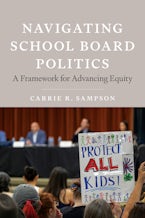Home
Voices in Education
At HEP, we are committed to publishing books that explore the intersection of climate change and education. These two titles—which we are highlighting for Earth Day—provide guidance and strategies for…
Read MoreConfronting Colonial Legacies in University Climate Action
By Sharon Stein and Jan Hare Indigenous thinkers have long pointed to the central role of colonialism in creating the climate and nature emergency, but institutions of higher education have…
Read MoreA Year in Review: Looking Back at 2023
2023 was an exciting year at Harvard Education Press. During the past year, we had the pleasure of engaging with important people that drive the conversation in education and aim…
Read More



































